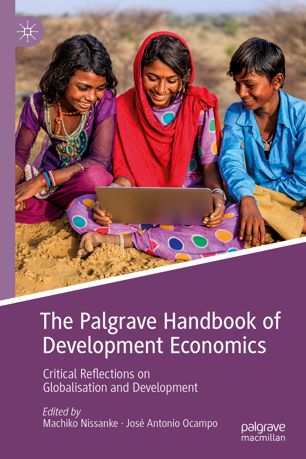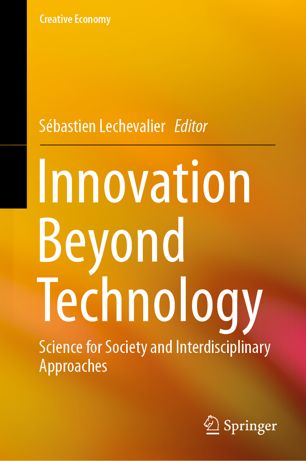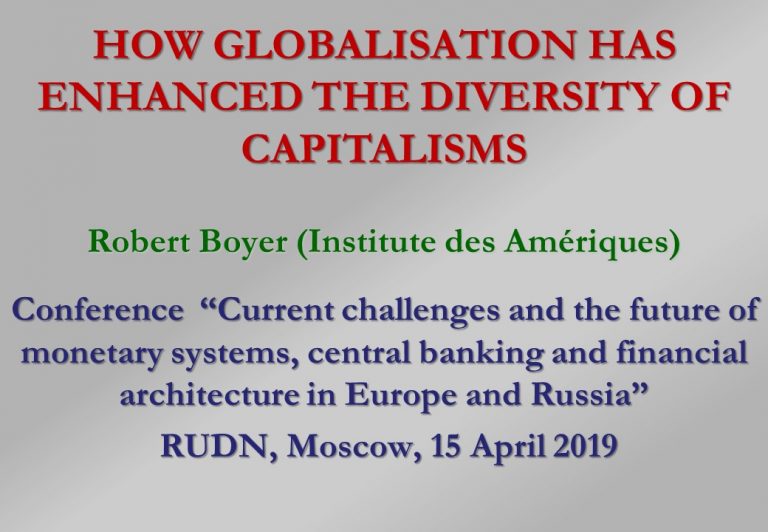Socio-Economic Review , 2021.
Résumé
L’émergence de plates-formes multinationales organisant l’interaction d’une multiplicité d’entreprises et de consommateurs est analysée par l’approche de la théorie de la régulation. La chute de Yahoo! puis l’essor de Google, Amazon, Facebook, Apple et Wikipédia donnent une impulsion sans précédent à la construction de nouvel écosystème porté par un flux constant d’innovations sur l’information. Peut-elle définir une nouvelle configuration dans l’histoire des capitalismes ? Contre l’hypothèse d’un déterminisme technologique, différents types de plateformes peuvent coexister et dessiner des reconfigurations contrastées du monde moderne : un capitalisme de plateformes de marché aux USA, une société de contrôle panoptique en Chine, alors qu’idéalement l’Union européenne vise à convertir l’information en un Commun mondial, surveillé par les citoyens.
VisioConférence : « Perspectives transaméricaines », Hydrocarbures non conventionnels dans les Amériques : une nouvelle donne énergétique face à la crise globale, Institut des Amériques / ENS, 12 janvier 2021
Revista de Economía y Estadística de la Universidad Nacional de Córdoba (Argentine), sobre problemas estructurales del desarrollo y la innovación, Vol. 58, Núm. 1 (2020), p. 11-58.
Entrevista para el Canal del Congreso, CESOP, el 24 de Enero 2020, habló del desencanto con la democracia, el nuevo orden mundial y la crisis de la política que nos pone ante peligros como el nacionalismo y la xenofobia.
Espagnol. Présentation Powerpoint, Conférence au Colegio de Mexico le 16 janvier 2020.
In Machiko Nissanke and José Antonio Ocampo (editors), The Palgrave handbook of developments economics. Réflexions critiques sur la mondialisation et le développement. Chapitre : Questions méthodologiques et conceptuelles en économie du développement. Manuel de l’économie du développement de Palgrave, Chapiter 6, Palgrave, MacMillan, pages 177-227.
Abstract
Development is not the search for an optimal static macro-equilibrium but it derives from the art of creating, if not miracles, at least virtuous circles in which social values, organizations, institutions and technological systems co-evolve. Development modes are therefore built upon the discovery of possible institutional arrangements that fulfil two conditions: the viability of the accumulation process and a political legitimacy around an implicit or explicit institutionalized compromise. The survey of economic history reveals a limited number of these modes: import substitution development, export-led, foreign direct investment-led and finally based upon low wage and poor welfare. Contemporary China explores a genuine development mode built upon the acute competition between a myriad of local corporatism under the aegis of a party-State. Most of these modes rely upon the resilience of an open world economy. Its stability is not guaranteed given the obstacles to the defense of global public goods and to the creation of new Commons. Last but not least, the merits of an anthropogenetic model based on education, health and culture should not be underestimated.
Keywords
Development mode Regulation theory Accumulation regime Institutionalized compromise Viability
Presentation Powerpoint, prepared for the Conference “Current challenges and the future of monetary systems, central banking and financial architecture in Europe and Russia”
RUDN, Moscow, 15 April 2019
Presentation Powerpoint prepared for EACES Workshop « The Rise of State Capitalism: consequences for economic and political development”, Moscow, April 10 and 11, 2019
Entretien avec Pierre ALARY, Revue de la Régulation, n° 25, 1er semestre 2019



